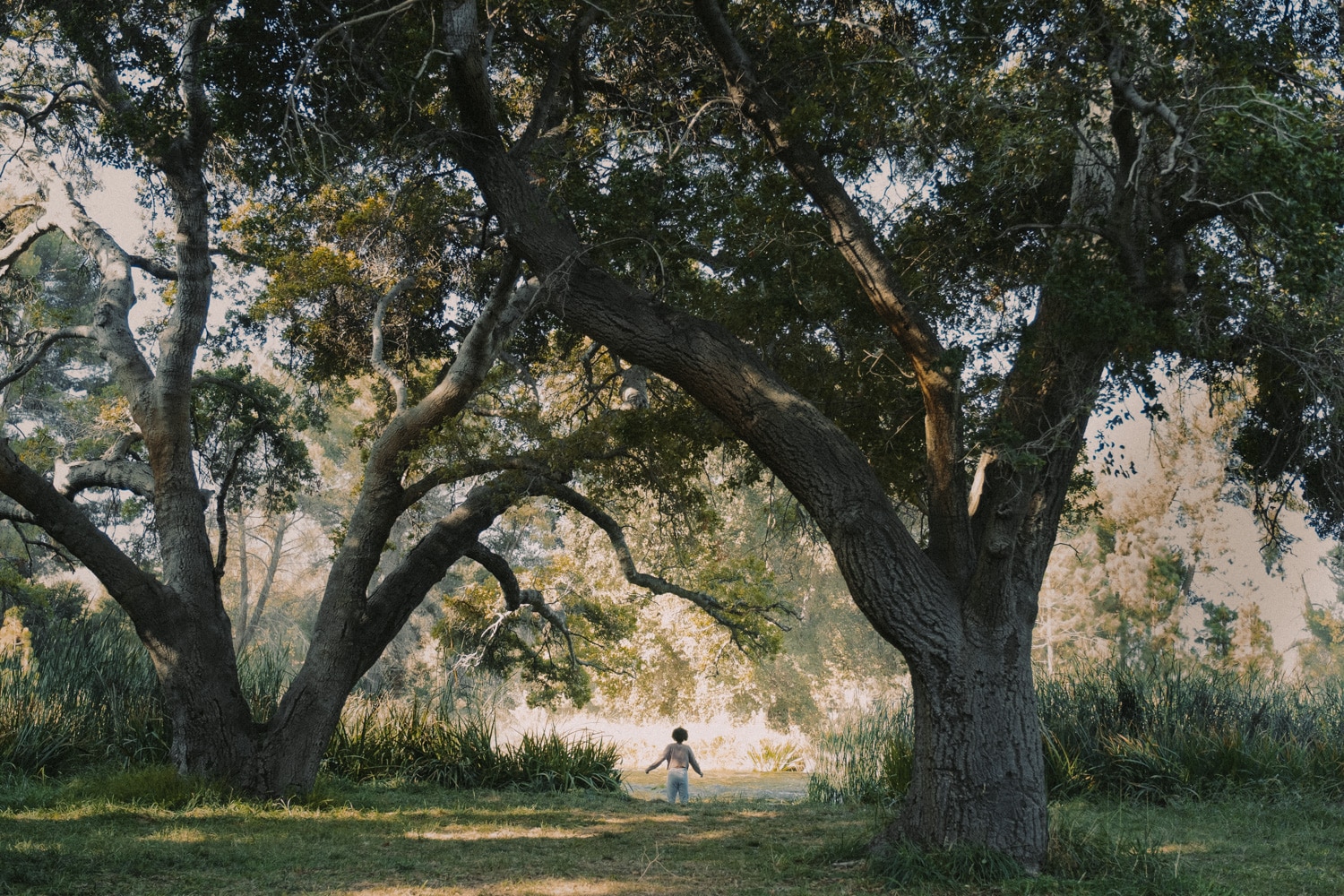Create a free profile to get unlimited access to exclusive videos, sweepstakes, and more!
'Kindred' showrunner explains differences from the book, how HBO's 'Watchmen' inspired adaptation
It took a long time, but showrunner Branden Jacobs-Jenkins finally cracked adapting Octavia E. Butler's Kindred.

First published in 1979, Octavia E. Butler's Kindred wowed readers, critics and academics for using a sci-fi story about a young contemporary Black woman who time travels back to the era of Antebellum slavery to explore the themes and trauma of racial injustice. In its four decades of existence, Kindred has only ever been adapted into a graphic novel in 2017 by author Damien Duffy and artist John Jennings, but it's always seemed ripe for a film or television series treatment.
For playwright Branden Jacobs-Jenkins, transitioning into writing for genre television series like HBO's Watchmen and Prime Video's Outer Range helped him see that long-form storytelling inspired by the source work might be the right path for Kindred, which he's developed into a new show that premiered Tuesday on Hulu. A consulting producer on Watchmen and Outer Range, Jacobs-Jenkins tells SYFY WIRE that the approaches of the creators of those shows, Damon Lindelof and Brian Watkins, respectively, changed his own view of what adaptations could be.
"[Damon's] adaptation of [Watchmen] was to be a sequel, meaning that it would be its own standalone thing. But if you knew the book, you would have this much more enriching experience watching it," Jacobs-Jenkins explains about the intention of the show, which was based on the 1986 DC Comics series of the same name from Alan Moore and Dave Gibbons.
"I think there was a lot of fear that that wouldn't work," Jacobs-Jenkins adds. "And that show wouldn't have unless there was a balance of real respect for that original text and the desire to push those impulses of Alan Moore's to the edge of what they might be. I think before that experience, I probably was more ready to try to play by the rules and create the [Kindred] book itself, along the lines of The Handmaid's Tale. But what Watchmen taught me was that things that try to replace the original text are not interesting. The best things, actually, will send you back to that text, and still allow you to have your own experience of it."
And with Outer Range, Jacobs-Jenkins says Watkins showed him that sci-fi would also be a parable. "He wanted to make genre into a spiritual exercise and really think through with human beings what happens when you encounter the unthinkable," he says. "Ironically, I was working on [Kindred] while I was working on Outer Range as well, which are both about a normal person suddenly falling into the abyss. And how do you really dramatize the emotional experience of trying to wrap your head around experiencing something that no one has ever experienced before?"
Jacobs-Jenkins says both series gave him confidence to contemporize Kindred to present day — 2016 to be exact — to tell the story of Dana James (Mallori Johnson) as a recent transplant to Los Angeles with dreams of being a television writer. The black sheep of her family, Dana sells her grandmother's New York home to buy her own home in L.A., much to the dismay of her aunt, and starts dating a white bartender. And then she starts having terrifying dreams where she's on a plantation in slavery era Maryland ... except they aren't dreams. She's time traveling and doesn't know why.
On his decision to set the show's present-day timeline in 2016, Jacobs-Jenkins says it was a case of the book being 40 years old and not wanting to ignore the last 40 years of progress in civil rights, social rights and gender rights. "A contemporary Black woman isn't a Black woman from 20 years ago, or a Black woman from 40 years ago. If you put them all next to each other, what are the commonalities and where are the divergences?" he asks. "And what does that ultimately say about what I think Butler's getting at?"
He continues, "The way that people think about Black feminist thought and literature evolved tremendously too. I wanted to find a way to not ignore those developments because those things so much influence where we are now, even this idea of intersectionality that comes out of Black feminist thought. I wanted to somehow create a vessel that could hold not just the thoughts of this book, but the influence of this book. And also what we've learned about the world since then."
And telling Kindred in an episodic format also allowed Jacobs-Jenkins to more closely match Dana's gradual understanding of her predicament and how to be an agent of change in the past. "The book is about how well anyone can be known, and the way that you only know people is spending time with them," he says. "I felt like the [time] games that Butler's playing, it's almost like this kind of fall through structure where in the past, however many years can feel like a minute in the present. I felt the only way to really feel the effect of that was to be with our character as she's moving through this experience of time descending and warping and changing. Literally, in the course of the book, Butler checks in on this one person's life over the course of however many decades. And that's what television does well. It asks you to stay with people and watch them develop and change and track the ways in which they change. It's almost like novelistic in that way, and that's why I felt like this is actually a TV show."
Kindred premieres Dec. 13 on Hulu.
Looking for more smart science fiction? Check out shows like SYFY's Resident Alien, as well as Peacock original Brave New World, streaming now on Peacock.


























